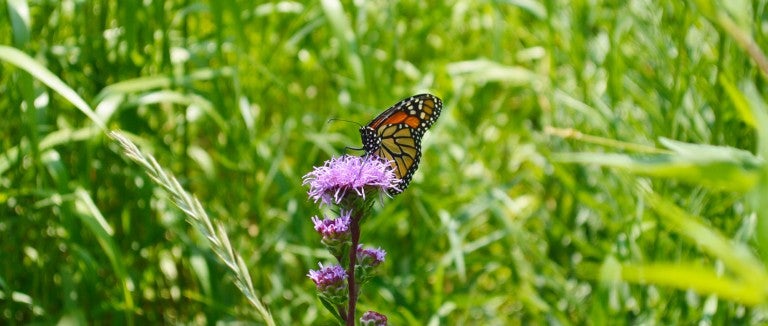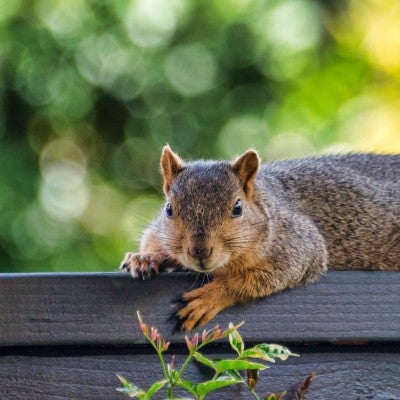Ever wonder why it is that we somehow lose the fascination we have as kids for observing insects? Perhaps we acquire a few too many negative stories, or we end up focusing only on the mosquitoes biting us on summer evenings, or the uninvited ants in our kitchen.
But what about all the other insect species, the vast majority of which are harmless, or even beneficial? Roughly 70% of all animal species are insects: Beetles alone comprise 30%!
Pause a while and watch closely—you're sure to develop an appreciation.
Tiny allies in the garden (and beyond)
Here are some of the small creatures you might encounter in your neighborhood, along with what they are contributing to your backyard ecosystem and beyond:
- Bees and many flies are pollinating your flowers, fruits and vegetables.
- Grasshoppers and locusts are providing protein and fat for nesting birds.
- Certain wasps and flies are eating or parasitizing insects that we consider pests.
- Beetles are decomposing organic materials, facilitating the cycling of nutrients.
- Butterflies are pollinating flowers and becoming food for birds.
- Mites and springtails—found in nearly all habitats—are producing humus (mature compost).
- Glowworms of the firefly genus Photuris are feeding upon pesky snails and slugs.
- Assassin bugs are eating flies, beetles and hornworms.
- Moths are pollinating the same plant species that they defoliated as caterpillars.
How to return the favor
With a few welcoming gestures, you can attract insects that will help your gardens and yard flourish.
- Refrain from using pesticides and herbicides—they kill beneficial insects, not just their intended targets, and they harm other wildlife.
- Plant native nectar-producing wildflowers and flowering herbs.
- Use clover as ground cover to provide nectar for bees and other insects.
- Set out a dish with pebbles and water for insects to sip; freshen the water every third day.
- Don't clip down perennials, so they can provide shelter through the fall and winter.
- Leave some leaf litter so beneficial insects can overwinter in it.
- Create a compost pile as a year-round refuge for beneficial insects.
Learn more
Though butterflies already have a large and loyal following, many other insects are exquisite in their own ways and equally worthy of watching. An increasing number of beautifully illustrated field guides awaits all who want to learn about these fascinating animals.
Observe at night! Fireflies (or lightning bugs) can be as magical for you at 50 as they were at 5 if you let them and furry moths are out visiting fragrant and luminous night-blooming flowers—so scope out the flowers ahead of time and know where to head with a flashlight!
A final word
Despite our battles with a few troublesome insect species, the overriding truth is that we simply could not get by without the help of our many insect friends—and they add infinite interest and beauty to the world. Make the small effort to maintain a healthy backyard where a diversity of insects can abound and the beneficial ones will keep the others in check for you.
Then take time to appreciate the many forms, voices and behaviors of these smallest of wild neighbors as they busily keep life humming along for you. Your rekindled curiosity is sure to inspire others!

